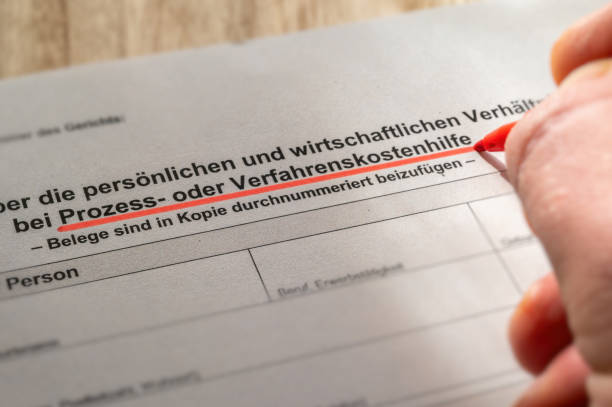
Procedural law is one that focuses on establishing the rules that must be followed in the processes.This refers to judicial processes, since many different elements come together at the same time.
This is the case that occurs when two parties are dissatisfied with the way in which an act of legal status has been carried out.
For this reason, they decide to settle the matter in court and submit to whatever it offers as a solution.
Here the role to be fulfilled by each participant in the activity is regulated . It is very important because it maintains order at its best and helps make problems bigger.
If you want to know much more about this type of law, we invite you to join us, as we will touch on the most relevant points of the subject.
What is procedural law?
Procedural law is defined as a public right. Its basic function is to ensure that a conflict or violation of the law is resolved correctly.For this reason, it can be seen as a tool to enforce a rule that has been violated.
Thanks to procedural law, there is greater ease when it comes to raising the requirements to be provided, such as documents and evidence.
There is also clarity on how a judicial process is followed and the probable waiting periods according to each case.
Finally, it records all the effects that the procedure will have for each one of those involved. In this sense, the procedural law is oriented according to the case to be disputed, since it can be of a civil or criminal nature .
Depending on the case, the rules of the game imposed for each one will be followed and the way of advancing along the way, with their corresponding differences.
For example:
For example, in criminal procedural law, progress is made with a preliminary investigation stage based on a complaint.While in civil procedural law, the first step is the lawsuit.
Why is procedural law important?
The procedural law is important because through it the procedure to be followed in any legal activity is better organized.This means that by exercising the correct way of carrying out the processes, it prints order and equality to each one.
This allows similar cases to be handled through the same mechanisms, meeting the same requirements and waiting the same time frames.
In short, it is important because it allows organization but also facilitates equity in the processes.
Where is the procedural law regulated?
The procedural law is regulated in the procedural law .
This, in itself, is not a specific regulation for all procedural law , but rather has a regulation for each case.
In our country, there are two main laws related to these processes and they are mentioned below:
- Prosecution Law : this includes the provisions that have to do with matters of a civil and criminal nature and that entail the need for a ruling by a court.
- Regulatory law of the jurisdiction : in this case the aspects linked to the social order and the contentious relations of an administrative nature are dealt with.
However, the legislative body of each country will direct the formulation of these laws or if the processes will be included within others.
For example, there may be elements of labor procedural law within the organic law that governs this matter.
What characteristics does procedural law have?
Due to the way in which procedural law is exercised, there are different characteristics by which it is recognized.
These are of inviolable condition because if it were not, the very concept under which it is framed would be lacking.
of a public nature
In any process, whether civil or criminal, the State has an obligatory intervention since it is in charge of the courts.
This is what gives it public meaning.
But it can also be assessed from the point of view of the action it exerts on the community, since it does not seek to measure the particular but the collective.
used as an instrument
Procedural law is not a goal or objective, but the path that must be followed to achieve what is proposed.
It is for this reason that the procedural name is used.
These attributes, which could be seen as a simple algorithm or step by step , give it the status of standard.
Autonomy
It refers to a right that does not depend on any other to be used.
This feature has been made even easier with the inclusion of its own working language. Also with the use of institutions whose function is to attend to the processes.
But, perhaps the most important issue is that it has its own principles which are known as principles of procedural law.
Unit
Although in fact the procedural law does not follow the same methods to deal with a commercial matter as a criminal one, it is a unique right.
This is because its principles, management and the institutions involved work equally in all cases.
The exception is that special provisions are established to differentiate one case from another.
What are the sources of procedural law?
The sources of procedural law are those elements from which bases are taken to create regulations.
Its purpose is to serve as an element of consultation before any fact that deserves to be judged in order to always maintain a similar procedure.
All branches of law have certain sources that have laid the foundations throughout history.
In this sense, the following are sources of procedural law:
- The law: framed as the fundamental principle of the entire legal system and from where governing principles are established that help or complement and not go against what is proposed. If, for example, the law establishes that all citizens must present their identification to carry out any procedure, it is logical that the procedural law uses this opinion in its own work system.
- The custom: understood as the way things have been done at a certain time and that have been positive to give it continuity today.
- The jurisprudence: it serves as a basis against cases that have had any relationship with what is lived today and that can be taken as a basis.
- The doctrine: establishing that even the theoretical foundations have a decisive role in the formulation of legal regulations.
It is worth clarifying, furthermore, that custom and law are considered sources of a primary nature; while doctrine and jurisprudence are established as secondary sources.
What are the procedural principles?
The procedural principles are those elements that are used in the development of any process.
These are numerous and heterogeneous and these two characteristics facilitate usability in legal acts.
Among the most important principles we have:
- Publicity: the events must be public in order to assess the conduct of the participants in the event.
- Procedural impulse: it consists of making the appropriate advances so that the trial does not remain static but that it fulfills the entire process.
- Equality of the parties: establishes that those involved in the trial must appear in equal conditions, if there is no element that privileges them.
- Process economy: seeks to ensure that everything is executed as diligently as possible to save time and resources.
- Immediacy: seeks that the judge is involved in the entire process.
- Immunity from jurisdiction: means that judges only have the opportunity to decide in the territory in which they have jurisdiction.
- Congruence of the sentences: seeks that the sentences are in accordance with what was requested at the time of the complaint or demand.
- Orality and writing: it is based on the fact that every process must have elements of oral and written inclusion, around participation in the trial and presentation of evidence.
- Estoppel: means that each intervener has a set time to execute certain acts and, if they do not do so, they lose the right to claim them later.
- Procedural consummation: the procedural rights, once they have been used, disappear.
- Concentration: seeks that there are not many hearings, but the necessary ones so that the judge can obtain sufficient information about the case.
- Procedural effectiveness: seeks that the duration of the entire process is in accordance with the interests of those involved.
- Validation: establishes that cases that have already been tried, if they are not challenged, are closed because it is considered to be a thing already judged.
- Contradictory: it is the moment in which the defendant takes the baton of his intervention and indicates the necessary elements in his defense.
- Integrity: seeks that all cases are treated within the framework of the law and not as a mere act of private interest that promotes the illegal.
- Adaptation of the process: it consists of the respect that must be given to each of the phases of a process and that are established within the procedural laws.
- Respect for the judicial investiture: any process carried out before the agreed entity must be premised on respect for those who exercise the function of authority of the judiciary.
- Device: indicates that those involved in the trial are responsible for triggering the work within it.
All of us, throughout life, need to carry out some action with the support of procedural law , although we probably did not know that it was called that.
And it is that knowing about these issues is not only the task of those who make life within the law , but of all as citizens.
We love these themes and we want to legally share them with you, so please wait for the next themes.



